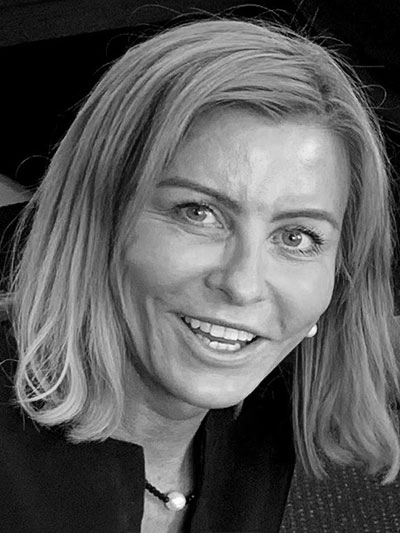When looking to hire effective leaders who bring diversity of thought into an organisation, some “out of the box” thinking is a must. More than ever before, corporate culture is under the spotlight and whether this means introducing ‘rebalancing’ leave, establishing advisory boards or mandating diversity in the shortlisting process, an invested superannuation workforce is essential to ensure engaged members.

Diversity of thought the new benchmark for hiring
Daniel Coone, head executive search consultant, Johnson Partners
Daniel Coone, with 25 years’ experience initially in the UK and then in Australia, said the enhanced powers from APRA, the extension of the BEAR regime and increasing liability for senior executives means that boards are going to want a much clearer view of both financial and non-financial risk in organisations. Compounded by the fact the internet provides a permanent ledger of both individual and organisational good and bad deeds – all will have implications for hiring.
When it comes to appointing leaders, Coone recommends being ambitious, strategic, thorough, and creative when searching for talent.
Be ambitious
Some funds may have reservations looking outside their industry, but Coone suggests being ambitious and extending the search across broader financial services for talent. Retail banks for example, where current turmoil has resulted in “a largely disengaged workforce” could offer an opportunity with a ready pool of talented people, some of which some may be interested in working in superannuation he suggests.
Also, with the rise of in-house funds management, Coone said fund managers may also be interested in working for superannuation funds, more so today than ten years ago. “They’re being squeezed at both ends by index products and, to be frank, by the asset owners—you guys—in terms of fees. So, I would just encourage you to be ambitious when you think about hiring and be a bit more confident that you can get the people in”, he said.
Be strategic
While many organisations are not bad at future-stating new roles 3-5 years out, they’re sometimes not as good at future-stating replacement roles. When somebody leaves an organisation, Coone suggests using this as an opportunity to attract a more diverse skillset into the organisation.
Involving all stakeholders in the hiring processes is advisable, and when selecting for experience, in particular he suggests looking for ‘T-shaped people’, a term he explains as those with technical expertise as well as breadth; and that breadth could be on a multifunctional basis, it could be cross-industry, or it could be geographical. “Because that’s where you’re going to start getting your diversity of experience,” he said.
Be thorough
When it comes to processes, it’s important to be thorough when trying to get some diversity of thought into your organisation. In order to get diversity of background, whether that’s gender or heritage, it’s advisable to start mandating that as part of your shortlist processes, with some organisations now mandating 50 per cent. ”Whether you’re doing it as an internal recruitment exercise using internal recruiters, or you’re using a partner for search, it just forces people to look harder and think harder about it,” Coone said.
Be creative
Think beyond local when it comes to recruiting talent and consider ‘step-up’ and ‘lateral’ candidates, especially in terms of injecting diversity and diverse-thought into your organisation.
The use of advisory boards is also encouraged, as are often used in the United States, “where you’re trying to get a specific skill, often tech skills, to influence the board at the top”, Coone said.
“People are highly interested in being a part of a growing superannuation industry, and it’s, quite frankly, a pretty cost-effective way of getting strategic change-thought at the top. And that’s what filters down through the organisation. You need the culture at the top, and to have the right culture you need the right experience, so somehow or another, you’ve got to get it up there,” Coone said.

Engaged employees attract engaged members
Sally Humphris, Executive Director, Super Recruiters
How are you going to ensure you have an engaged workforce, and one that is going to meet your client’s expectations and experiences? With over 20 years’ experience in roles within the industry Sally Humphris said, “we’re seeing some new roles and new titles which are now starting to appear in the marketplace. These business titles are Client Experience Manager, and Employee Experience Managers”.
Another current workplace culture challenge is ensuring that employees find the workplace a place they like to spend time at. “We’re seeing a lot of demand by employees for less focus on time and more focus on input,” she said.
Humphris cited an example, their client—consultancy-style business Inventium—where staff work long hours and travel extensively. They introduced “rebalance leave” which allowed their employees to take as much leave as they needed, after travelling, to rebalance their lives and get back on board again.
She said it helped that their office had very good communications and technology systems that allowed each of them to log in and see that no one was being selfish and there were no conflicts.
This integration of technology and people was also successfully achieved at travel agency firm hopefully enhance efficiencies. They called it ‘Try Before You Fly’ where customers use virtual reality headsets to experience and immersive five-minute sampler of an overseas destination that they thought they might like to travel to.
“While some feared this technology might potentially eliminate the need for travel, in fact, the ‘Try Before You Fly’ led to 17,000 in US bookings, and a 40 per cent return on investment,” Humphris said.
“So, we think the technology is important, but at the end of the day, the most important part of any business is the people and empowering your people. In fact, a recent CFA institute survey identified three key areas that organisations rated as the most important. The first was trust, the second was diversity, and the thirdly empathy,” she said.

Walk the talk gives greater sense of purpose
Jarrod Hall, Principal at Mercer Evolve Intelligence
Jarrod Hall believes in order to attract and retain talent when recruiting, it is firstly important to understand what success looks like. Success, he describes, is an integrated diversity and inclusion model that includes behaviours, structures, and systems. A shared sense of purpose, and an external brand that matches the internal one.
In terms of attraction, Hall said it was critical that executives and boards publicise the importance of diversity and inclusion externally. Also, promoting pay equity is a key focus to attract and retain female talent.
As well as 50/50 gender splits on shortlists, Hall emphasised the importance of ‘returnships’, a term from outside the sector, referring to older women re-entering the workforce, perhaps after a period away looking after children. Some organisations are creating roles where age and gender had previously been a barri
er, with specific returnship programmes, for re-entry and retraining.
Developing is critical in retaining talent. Sponsorship development programmes that give sponsors and sponsees opportunity to help women build networks internally are important. This way, when roles are presented, women will be able to draw on these networks to be considered for those positions Hall said.
Hall’s research however shows that where some organisations fall down is when diversity is compliance-led, and is merely a box-ticking exercise, whether it’s just on gender split, on shortlists, or other elements. “This is a critical data point that’s observed by female prospects and leaders”, he said. In the early ranks or in middle management, women look up and they don’t see those behaviours being adhered to or being recognised, and that’s when top female talent will leave the organisation. “So, walking the talk is as important as all the policies, processes, and systems and procedures that you have in your organisation.”
“It makes business sense to have a diverse and inclusive workforce”, he said.




































